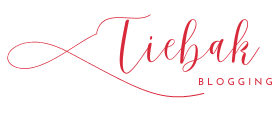Fake Bank Receipt App ⏬⏬
Introducing the intriguing world of fake bank receipt apps—a topic that has garnered attention due to its controversial nature. With the rapid advancement of technology, these applications have emerged, offering users a way to generate counterfeit bank receipts for various purposes. However, their implications raise ethical concerns and legal implications, making it crucial to delve deeper into the subject matter. In this exploration, we will uncover the workings of fake bank receipt apps, examine their potential consequences, and shed light on the broader implications they pose to individuals and society as a whole.
Fake Bank Receipt Generator: Understanding the Risks and Consequences
Introduction:
In recent times, the availability of online tools and software claiming to generate fake bank receipts has become a concerning issue. These tools are designed to create counterfeit proofs of payment or transaction receipts that may deceive individuals or organizations. However, it is crucial to understand that engaging in such activities can have severe legal and ethical repercussions.
The Risks:
1. Legal Consequences: The act of generating fake bank receipts is illegal in most jurisdictions. It falls under various criminal offenses such as fraud, forgery, identity theft, and falsifying financial documents. Perpetrators could face significant fines, imprisonment, or other legal penalties if caught.
2. Ethical Implications: Creating and using fake bank receipts to deceive others is highly unethical. It can harm individuals, businesses, or institutions by causing financial losses, damaging reputations, and eroding trust within the community.
The Consequences:
1. Criminal Charges: Engaging in the production or distribution of fake bank receipts can result in criminal charges. Law enforcement agencies actively investigate fraudulent activities, and offenders may be prosecuted accordingly.
2. Financial Losses: Individuals or businesses that fall victim to fake bank receipt scams may suffer financial losses. For example, accepting a fraudulent bank receipt as proof of payment can lead to goods or services being released without actual payment received.
3. Reputational Damage: Being involved in fraudulent activities can severely damage one’s reputation. Whether it’s an individual or an organization, the loss of trust and credibility can have long-lasting effects on personal and professional relationships.
4. Legal Obligations: Organizations found to be associated with fake bank receipt generation may face legal liabilities. This could result in lawsuits, fines, and other legal consequences that can significantly impact their operations or even lead to closure.
The use of fake bank receipt generators is both legally and ethically problematic. Engaging in such activities not only exposes individuals to severe legal consequences but also undermines trust within society. It is essential to prioritize honesty, integrity, and adherence to the law when dealing with financial transactions. Anyone who encounters suspicious activity related to fake bank receipts should report it to the appropriate authorities to help protect themselves and others from potential harm.
Fake Bank Receipt App
A fake bank receipt app refers to a mobile application that allows users to create counterfeit or fraudulent bank receipts. These apps are designed to imitate legitimate banking transactions, but they are not associated with any actual financial institution and do not reflect real transactions.
These apps can be used for various purposes, including creating false proof of payment, generating counterfeit receipts for fraudulent activities, or deceiving individuals into believing that a transaction has occurred.
It is important to note that the use of fake bank receipt apps is illegal and unethical. Engaging in fraudulent activities, such as using counterfeit receipts, can lead to severe legal consequences, including fines and imprisonment.
Financial institutions and authorities actively work to identify and combat the use of fake bank receipt apps. They employ sophisticated technologies and security measures to detect fraudulent activities and protect users from scams.
To avoid falling victim to scams involving fake bank receipts, it is crucial to practice caution when dealing with financial transactions. Always verify the authenticity of any receipts or payment confirmations you receive, especially if they come from unfamiliar or suspicious sources.
- Do not rely solely on digital receipts; cross-check with other evidence, such as bank statements or transaction records.
- If you suspect a receipt to be fake or fraudulent, report it to your bank or relevant authorities immediately.
- Stay informed about the latest scams and fraud techniques to better protect yourself and your finances.
Remember, engaging in illegal activities or attempting to deceive others through the use of fake bank receipts can have serious legal repercussions. It is always best to conduct your financial transactions through legitimate and secure channels provided by reputable financial institutions.
Create Fake Bank Receipts Online
| Topic | Description |
|---|---|
| Introduction | Creating fake bank receipts online is an illicit practice that involves forging or fabricating financial transaction records for deceptive purposes. It is important to understand that engaging in this activity is illegal and unethical, as it can lead to serious consequences. |
| Risks and Consequences | Participating in the creation of fake bank receipts carries several risks and potential legal consequences. These may include criminal charges, fines, imprisonment, damage to personal reputation, and negative impacts on creditworthiness. It is crucial to prioritize ethical behavior and comply with the law. |
| Legal Implications | Generating counterfeit bank receipts is a fraudulent act that violates various laws related to forgery, fraud, identity theft, and financial crimes. Legal systems around the world have strict measures in place to tackle such offenses, and individuals found guilty can face severe penalties under relevant legislation. |
| Ethics and Integrity | Faking bank receipts undermines the integrity of financial systems and institutions, compromising trust and stability. Maintaining ethical conduct is essential for personal and professional growth, fostering a fair and transparent society where trust plays a central role in financial transactions. |
| Alternatives | Instead of resorting to fraudulent practices, individuals should focus on legal and legitimate means to manage their finances. Maintaining accurate financial records, seeking professional advice, and exploring lawful methods of improving financial situations are advisable alternatives that promote integrity and accountability. |
The act of creating fake bank receipts online involves forging or fabricating financial transaction records for deceptive purposes. Engaging in this activity is illegal and unethical, carrying risks such as criminal charges, fines, imprisonment, reputation damage, and negative impacts on creditworthiness. Generating counterfeit bank receipts violates laws related to forgery, fraud, and financial crimes. Faking bank receipts undermines the integrity of financial systems and institutions, compromising trust and stability. It is crucial to prioritize ethical behavior, comply with the law, and explore legal alternatives for managing finances.
Generating Fake Bank Receipts
Generating fake bank receipts refers to the creation of counterfeit or fraudulent documents that resemble legitimate bank transaction records. It is important to note that engaging in such activities is illegal and unethical.
Fake bank receipts can be used for various malicious purposes, including scamming individuals, committing financial fraud, or misleading others into believing false transactions have taken place.
Manufacturing fake bank receipts involves manipulation of digital or printed documents to mimic the appearance of genuine receipts. Fraudsters may alter details such as the bank’s logo, account information, transaction amounts, dates, and beneficiary names to deceive unsuspecting victims.
The repercussions of generating fake bank receipts are severe. Individuals involved in this illegal activity can face criminal charges, hefty fines, imprisonment, and damage to their personal and professional reputation. Financial institutions and law enforcement agencies employ advanced security measures to detect and prevent the circulation of counterfeit documents.
It is crucial to promote awareness about the risks associated with fake bank receipts and encourage individuals to report any suspicious activities to the appropriate authorities. Maintaining vigilance and adhering to legal and ethical practices are essential for a secure and trustworthy banking system.
Printable Fake Bank Receipt Template
A printable fake bank receipt template is a document designed to resemble an authentic bank receipt but is created for non-legitimate purposes. It can be used in various scenarios, such as pranks, novelty items, or fictional storytelling, but it is important to note that using such templates for illegal activities, fraud, or misrepresentation is strictly prohibited.
These templates are typically created using HTML and CSS to replicate the layout and design of genuine bank receipts. They may include elements like the bank’s logo, transaction details, account information, and payment references. However, it is crucial to recognize that producing counterfeit bank receipts with the intention to deceive or defraud others is illegal and unethical.
Using a printable fake bank receipt template for harmless entertainment or personal use within legal boundaries can be acceptable. However, it is essential to respect the law, ethical principles, and others’ rights when utilizing such templates.
Please remember that forging or altering real bank receipts, using them for fraudulent purposes, or engaging in any illegal activities can lead to severe consequences, including legal penalties and damage to one’s reputation.
Fake Bank Statement Generator: An Overview
A fake bank statement generator is a tool or software that allows users to create counterfeit bank statements with fabricated transactions and balances. These generated statements mimic the appearance of legitimate bank documents but are entirely fictional and do not reflect real financial activities.
While the use of a fake bank statement generator may seem tempting for various reasons, it is important to note that such actions are illegal and unethical. Counterfeit bank statements can be used to deceive others, commit fraud, or misrepresent one’s financial status.
Engaging in fraudulent activities using fake bank statements can have severe consequences, including legal penalties and damage to personal and professional reputation. Financial institutions and authorities actively work to detect and prevent the circulation and use of counterfeit financial documents.
It is crucial to emphasize that honesty and integrity are fundamental principles when it comes to financial matters. It is always advisable to maintain accurate and truthful financial records rather than resorting to deceptive practices.
How to Make Fake Bank Receipts: Risks and Consequences
| Overview | |
|---|---|
|
Creating fake bank receipts is illegal and can lead to severe legal consequences. What are fake bank receipts? Fake bank receipts are fabricated documents designed to deceive others into believing that a financial transaction has taken place. They can be used to mislead individuals or organizations, commit fraud, or cover up illicit activities. The risks and consequences:
Creating fake bank receipts is not only morally wrong but also illegal. Engaging in such activities can result in severe legal consequences, damage to your reputation, and financial losses. It is crucial to always conduct financial transactions with honesty and integrity. |
|
Online Fake Bank Receipt Maker: Creating Fraudulent Documents
Online fake bank receipt makers are tools or services available on the internet that allow individuals to generate counterfeit bank receipts or statements. These tools are designed to mimic the appearance and structure of authentic bank documents, making it easier for scammers to deceive unsuspecting victims.
These fraudulent bank receipt generators often claim to offer a quick and convenient way to create fake receipts for various malicious purposes. Some individuals may use them to fabricate evidence of financial transactions to support false claims or deceive others into believing they have received payments or made deposits.
It is important to note that using online fake bank receipt makers is illegal and unethical. The creation and use of fraudulent documents can lead to serious legal consequences, including criminal charges and financial penalties. Engaging in such activities not only harms innocent individuals but also undermines the integrity of financial systems and institutions.
To protect yourself from falling victim to scams involving fake bank receipts, it is crucial to exercise caution and skepticism when dealing with financial transactions. Always verify the authenticity of any financial document or transaction by directly contacting the bank or financial institution involved. Legitimate banks employ robust security measures to ensure the accuracy and legitimacy of their issued receipts and statements.
Free Fake Bank Receipt Generator
A fake bank receipt generator is an online tool that creates counterfeit bank receipts or transaction confirmations. These generators are designed to mimic the appearance of genuine bank receipts, with details such as bank logos, transaction amounts, dates, and recipient information.
It is important to note that using a free fake bank receipt generator for fraudulent purposes is illegal and unethical. The primary purpose of such tools is usually intended for pranks, novelty purposes, or educational simulations.
Generating fake bank receipts can have serious consequences, including legal repercussions and damage to personal or business reputation. It is crucial to use technology responsibly and within legal boundaries.
Individuals and businesses should be cautious when encountering any form of counterfeit documentation, including fake bank receipts. Real bank receipts typically contain security features and identifiable information that cannot be replicated by these generators.
If you require genuine bank receipts or transaction confirmations, it is recommended to obtain them through legitimate means, such as directly from your banking institution or authorized financial services.
Download Fake Bank Receipt
A fake bank receipt refers to a fabricated document that imitates the appearance of a legitimate bank receipt. These fraudulent receipts are usually created with the intention of deceiving others, often for dishonest purposes such as scamming or forgery.
It is important to note that engaging in activities related to downloading or using fake bank receipts is illegal and unethical. Participating in such actions can lead to severe consequences, including legal penalties and damage to one’s reputation.
Fake bank receipts are commonly associated with various scams, such as online fraud, identity theft, or financial schemes. Perpetrators may use these fabricated receipts to deceive individuals into believing they have received a payment, made a transaction, or conducted other financial activities.
Engaging in fraudulent activities, including the creation or distribution of fake bank receipts, is highly discouraged. It is essential to prioritize honesty, integrity, and legal compliance when dealing with financial matters. Trustworthy financial institutions provide genuine and valid documentation for transactions, ensuring transparency and accountability.
If you suspect any fraudulent activity or encounter suspicious bank receipts, it is recommended to report them to the appropriate authorities, such as your local law enforcement agency or the banking institution involved. Protecting yourself and others from scams and fraudulent practices is crucial for maintaining a secure financial environment.
- Downloading or using fake bank receipts is illegal and unethical.
- Fake bank receipts are often associated with scams and fraudulent activities.
- Prioritize honesty, integrity, and legal compliance when dealing with financial matters.
- Report any suspected fraudulent activity to the relevant authorities.
Remember, participating in illegal or deceptive practices can have severe consequences, both legally and ethically. It is always best to engage in honest and lawful activities to protect yourself and others.



